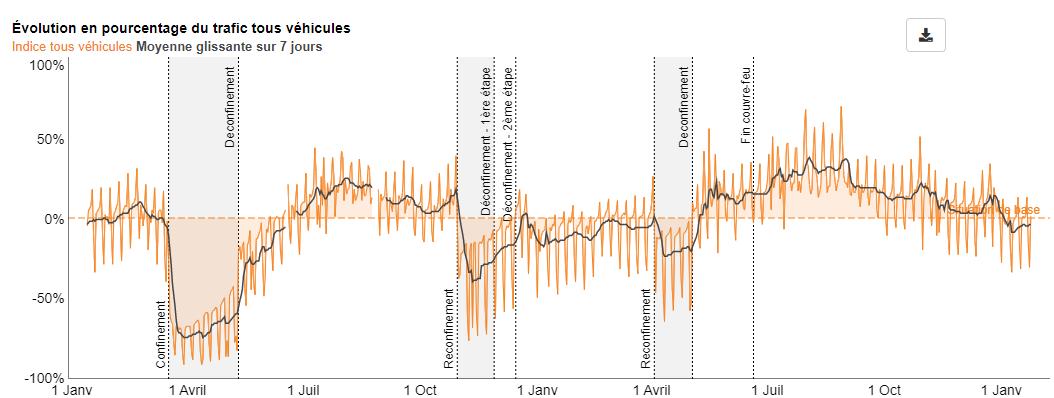Behaviours and models in the face of the pandemic
This workshop led by Cerema addressed the issue of individual and collective behaviors, as well as the strategies implemented to adapt to societal changes caused by the COVID-19 crisis.
The underlying element of this session is maintaining user confidence in public or shared transport, which has been particularly affected by this pandemic period. For this, predictive knowledge of traffic and passenger information are decisive.
What impacts of Covid on passenger information?
This was shown by Arnaud Chevallier, Marketing Director of Lumiplan. European number one in passenger information, equipping 80% of the 50 largest urban networks in France and +200 networks in Europe, Lumiplan has demonstrated that it can be a resilient support, capable of transmitting any useful information to the greatest number. .
By indicating the occupancy rate of the next approaching vehicles, the traveler can thus decide to wait for a vehicle in which there will be less crowding. Thus, thanks to technological innovations such as display with e_paper technology, NFC smart tags or Bluetooth beacons, each traveler has the possibility of receiving useful information in real time, whether on their smartphone or in the public space. while controlling energy consumption and using 4G communication networks.
In situ display is essential to avoid further marginalizing the 20% of the population without a smartphone or without a subscription to access information via applications. Thanks to a message vocalization device, the inclusion of visually impaired people is possible, including color blind people thanks to grayscale displays.
Shared mobility: On board cleaner, for individual and collective safety

The pandemic has also had an accelerating effect on innovation. Faced with health safety injunctions, Philippe Orvain, president and co-founder of Nomadic Solutions, has developed in a collaborative way (CAR&D, NextMove) in a few months a solution to ensure individual and collective safety in transport. On Board Cleaner is a product suitable for car-sharing vehicles to limit the risk of contamination in vehicles used by many users.
Simple and fast, this on-board solution can disinfect passenger compartments in 5 minutes, using a combination of the two most effective means (surface (UVC) and volumetric (ozone). Combined with an automatic "on demand" system without an operator , it is controlled by a secure smartphone application, operating in a closed loop and adapting to all vehicles.
This solution makes it possible to meet the increased demand for health safety through effective disinfection that gives travelers confidence in car sharing. This is the surprise and the favorite of this workshop.
Refocusing the prediction quality of models on contemporary issues
This particular period also made it possible to re-examine existing prediction models in the light of contemporary issues. Philippe Viala, macroscopic travel modeling expert at Citec, showed that it was important to make these widely used modeling tools more reliable by describing the areas for improvement to be developed for better prediction quality in finer areas.
The use of flow-speed curves at a macroscopic level has highlighted not only the differences, but also the similarities between the modeled traffic and the observed traffic. With regard to the characteristics of the network, this intervention improved the understanding of the origins and determinants of these models and to identify the axes of reliability. Discussions with the audience highlighted the possible integration of cycling movements in the improvement presented to the models.
Road traffic monitoring using Floating Car Data
ALYCE's final intervention, led by François Gau, Deputy Managing Director, and Sébastien Gomes, expert in mobility engineering and data processing, closed this workshop by providing an additional view on the measurement of road traffic.
Indeed, the unprecedented fluctuations in traffic during the various confinements have tested not only the prediction models, but also the systems for measuring mobility behavior. Road traffic monitoring using "floating car data" (FCD collects GNSS positions emitted by on-board vehicle systems, geolocation boxes for company vehicle fleets, or community mobile applications) now makes it possible , thanks to this sample weighing 10% of total traffic, the reliable measurement of road behavior.
At a macro or micro scale, in real time or historically, developments related to COVID can now be traced to improve knowledge of changes or new behaviors. This also makes it possible to determine the level of reliability of field surveys by characterizing the moment of return to "normal".
All these interventions thus show how COVID 19 has tremendously accelerated the digital transition of society and how the fluctuations in traffic induced by the various confinements have led to more reliable models and data, to best support the transformation of the behavior of road users by opening up prospects to reassure travelers wishing to move towards a modal shift in public transport, car sharing or even dynamic modes.
DIRECT. Assassination of Razia Askari in Besançon: "No guilt, no remorse, lack of empathy", the profile of Rashid Askari, accused of the assassination of his wife, dissected
[Video] The Amazing Spider-Man 2: the ultimate trailer
Samsung AU9000 Test | TechRadar
Nantes. He had assaulted a tram driver: sentenced to 6 months, he avoids prison